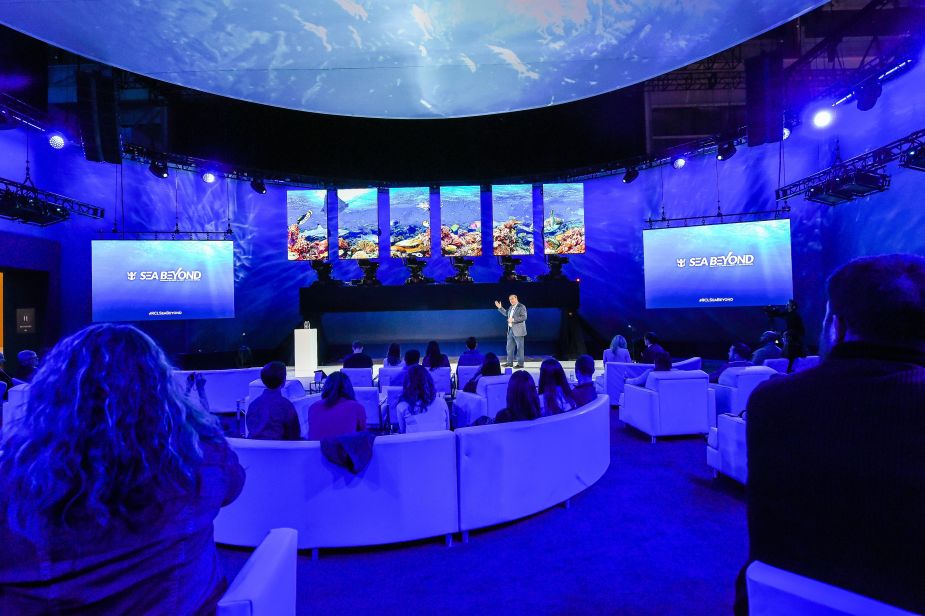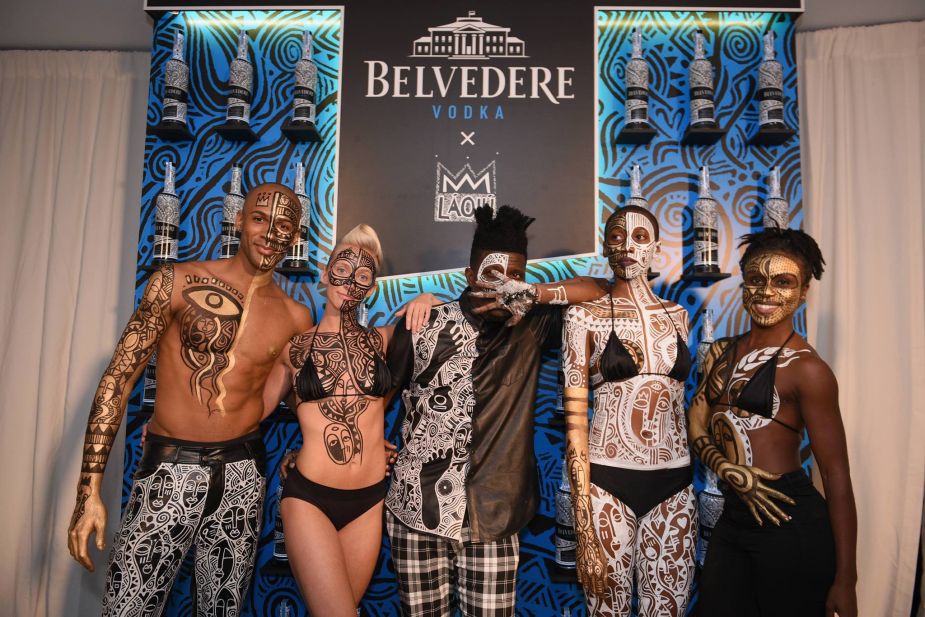
“Let Go of Your Fears and Embrace Your Curiosity:” Samantha Fortino’s Rally Cry to Upcoming EPs

Samantha Fortino is the director of production and technical operations at Jack Morton, where she leads the agency’s Jack East production and technical services team, a rare and trailblazing role for a woman in experiential marketing.
With over 20 years of production experience across industry sectors, she has overseen complex global builds and managed large teams to deliver technically sophisticated, creatively driven events around the world.
Working seamlessly across creative, production, and technical disciplines, Samantha ensures brand-consistent experiences at scale – a hallmark of Jack Morton’s global work.
A natural problem-solver and innovator, she has helped position Jack at the forefront of the industry with trendsetting, jaw-dropping, award-winning work.
LBB> What advice would you give to any aspiring producers or content creators hoping to make the jump into production?
Samantha> Do it! The role of a producer is incredibly rewarding – you get to work with amazing people, often leading the team or process, and see your incredible work come to life. If you’re new to the business, let go of your fears and embrace your curiosity. This is an incredibly welcoming industry, and we just want you to succeed – don’t be afraid to ask questions if you’re unsure of your next step.
LBB> What skills or emerging areas would you advise aspiring producers to learn about and educate themselves about?
Samantha> AI and technology for sure. A good foundation can help you support your clients and meet their expectations. Today, there are so many tools available to us that can help streamline production processes and elevate the work. Learning how to use them well makes you a better producer, and a smarter partner.
LBB> What was the biggest lesson you learned when you were starting out in production – and why has that stayed with you?
Samantha> Onsite, everyone is a PA. It doesn’t matter if you are the coordinator or the director of production. If something needs to get done, we get it done. Production is a team sport, and we all jump in to support wherever needed, regardless of title.
In 2017, Jack Morton created, designed and produced an experience for Royal Caribbean at the Brooklyn Navy Yard titled, SeaBeyond, which took guests on an immersive and interactive journey through the future of cruise ship travel. It was a massive production that integrated Royal’s latest technology and prototypes throughout every major interaction.
As the executive producer, my role leading up to the event included managing a team of nearly 80 people across 14 workstreams to ensure the seamless production and execution of this complex event. But when it came to launch day? I spent part of the evening cleaning and dressing the attendee bathrooms. Not the most glamorous of tasks, but someone had to do it.

LBB> When it comes to broadening access to production and improving diversity and inclusion what are your team doing to address this?
Samantha> We are always working to learn new things, discover new ways of working and deliver new, more inclusive experiences. That includes how we design for accessibility, not just in physical space, but across digital, hybrid, and cultural touchpoints.
We also have an incredible annual intern program that brings in junior talent from different backgrounds and parts of the country, expanding our team’s diversity and perspective.
LBB> If you compare your role to the role of the heads of TV/heads of production/executive producers when you first joined the industry, what do you think are the most striking or interesting changes (and what surprising things have stayed the same?)
Samantha> I think our leaders are more in the work now. Our teams are leaner, with less layers and that means that we may need to get into the weeds and details more than our predecessors did.
LBB> When it comes to educating producers how does your agency like to approach this?
Samantha> The best way to learn is by doing. While we do have a more formal training program that includes an outline of key skills, tools, training videos, etc., the sooner we can get new people into the work and around project leads, the better.
Nothing beats the firsthand experience you gain by working directly on a project and learning from others around you. For example, one year we produced an event for Belvedere’s partnership with the artist, Laolu NYC, at the Whitney Museum. It was all-hands-on-deck and that happened to be the same day our summer interns started, so we brought them along. It was a crash course training moment for them all – especially for those in creative, strategy and account management – but they learned a lot in that single day, and they were a huge help in making the event a success.
In this industry, we are ALWAYS learning. We are constantly rolling out new training programs and sessions, engaging our producers in new tools and new ways of working. We continue to work together as a team to grow our skills and learn from our lived and shared experiences.

LBB> It seems that there’s an emphasis on speed and volume when it comes to content – but where is the space for up and coming producers to learn about (and learn to appreciate) craft?
Samantha> Again, the best way to learn is by doing, but when clients push us to do things fast and efficiently, it’s difficult to bring in junior team members that are learning when you need a seasoned veteran that can just jump in and get the work done.
However, I have found great value in allowing more junior team members to shadow more senior members when possible. Another option is giving them a smaller role on the content team – focusing on an offline rehearsal room, a small video project, etc. This gives them the chance to own their area but still have someone to go to for guidance and direction as they’re learning.
LBB> On the other side of the equation, what’s the key to retaining expertise and helping people who have been working in production for decades to develop new skills?
Samantha> Continuing to challenge our senior leaders is key. We are always looking for new experiences and different types of programs for our producers to lead, flex and learn new skills if there’s interest. Keeping them engaged and continuing to give them new opportunities for growth is key to retaining great talent.
That may look different for different people. For some, this means continuing to produce the next big show. For others, it means learning to be a great mentor or manager and focusing on a path in management and operations – allowing them to be the next generation of great teachers and mentors for junior talent.
LBB> Clearly there is so much change, but what are the personality traits and skills that will always be in demand from producers?
Samantha> Attitude is key. The producer, in many cases, is the team leader. As the producer goes, so goes the team. If the producer is confident in their skills, in their decisions and in their team, the team (and the client!) will be too.
Producers are many things – we are project managers, we are strategic, we are creative, we are organised, and we are passionate about the work. We need our producers to lead our teams to do great work.















